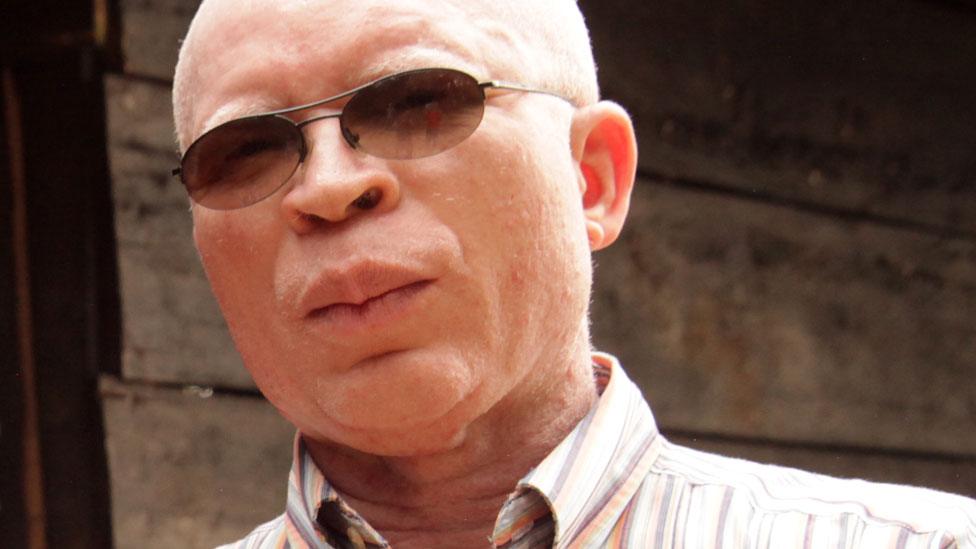Living with albinism in the UK
- Published
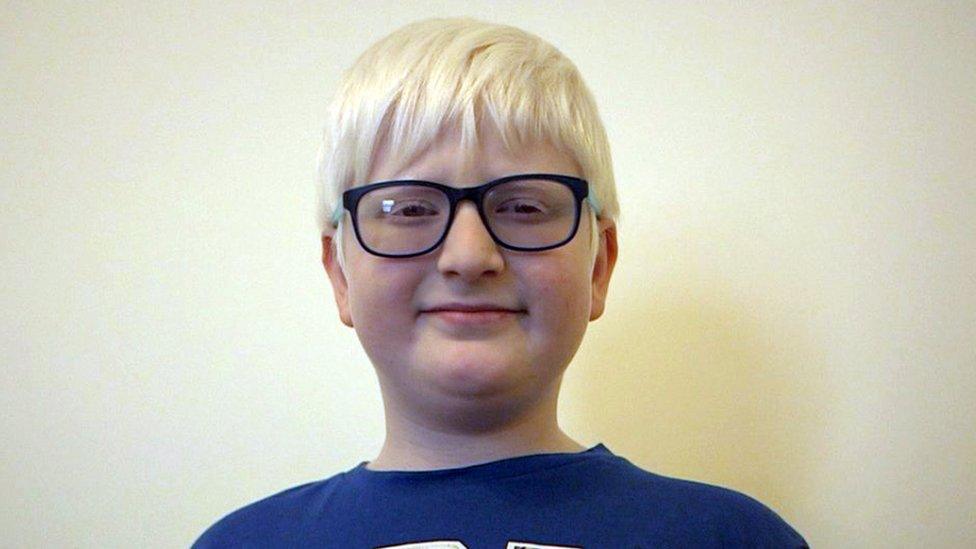
Zain uses an aid in school that helps him see what's written on the classroom whiteboard
More needs to be done to tackle the stigma around albinism in Britain, support group Albinism Fellowship has said. So what is it like for those who live with the condition?
"I think my albinism's good, as I stand out. I'm getting used to it," says eight-year-old Zain from east London.
"At first I felt very scared and was thinking 'What will I do?' but then I took one big breath, believed in myself and it was all OK."
Zain's father, Akeel, is British Pakistani. With his black hair, dark skin and brown eyes, he looks completely different from his son.
"When Zain came, he had blonde hair and it was a bit of a shock. The first comment I said to my wife when he was born was, 'Who have you been sleeping with, the milkman?' But we knew straightaway that something wasn't quite right."
Managing routine
It is estimated one in 17,000 people has some form of albinism - a rare genetic condition caused by a lack of the pigment melanin, which gives hair, skin and eyes their colour. Melanin is also involved in the development of the retina, meaning most people with albinism have vision problems.
Neither Akeel nor his wife have albinism but both are carriers of the same gene linked to the condition. The couple have learned to manage Zain's routine before he leaves the house.
"If there's a bright light in a room or he's going outside, Zain will have to wear a sun hat, darker glasses and also put on sun block to protect himself from the UV rays, as they can cause skin cancer."
Zain wears thick glasses as he has low vision and in school has an aid which dictates scanned text and enlarges content on the classroom whiteboard.
"We try not to let his albinism hold him back - we try to overcome the hurdles that we face in everyday life," Akeel says.
But for some, living with albinism means dealing with more than just the condition itself.
Twenty-year-old Tasmin Cressoti, an artist from Sheffield, is the only member of her family to have albinism. Like Zain, she stands out from her relatives because of her pale skin and light eyes - despite her parents both being white.
Tasmin Cressoti: 'I didn't feel human'
"It did make it harder because there was no-one there saying, 'Oh, look, I've got this as well, it's normal, it's not a big thing,'" she says.
Tasmin has dyed her white hair black, but as a teenager looked different from her classmates - something she feels made her an easy target for bullies.
"It's seen as beautiful to be tanned and not pale, so things like that make me stand out - especially when you're growing up as there's a lot of pressure to fit in to this norm and I didn't.
"Bullying completely destroyed my self-esteem. How can you tell your parents, 'Oh yeah, I'm being bullied' when you can't physically see who's actually doing it. I felt like some sort of albino freak," she says.
'Total extinction'
For some, the consequences of having albinism can be even more severe. People with the condition are routinely murdered for their body parts for use in witchcraft in a number of African countries.
A UN expert recently warned a continuation of the practice could lead to a "total extinction" of those living with albinism in parts of the continent.
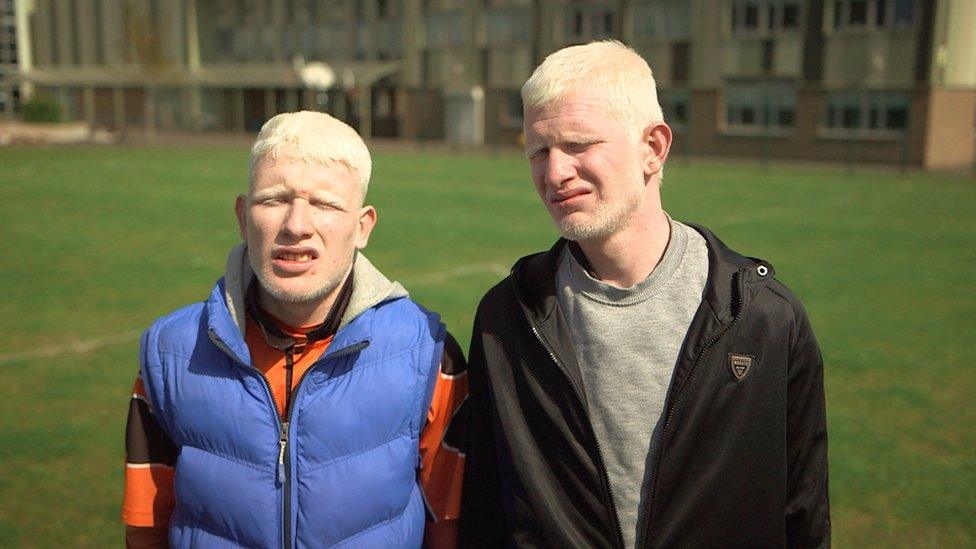
Arslan and Tehseen say their father received death threats in Pakistan because of his albinism
Nineteen-year-old Tehseen and his 21-year-old brother Arslan both came to the UK from Pakistan seven years ago. They are going through the asylum process and claim their father, who also has albinism, received death threats back home because of his condition.
Tehseen says: "He's been tortured and threatened. People don't see any difference between us and animals. Sometimes they say, 'You guys are aliens, you're not human.' In Pakistan, albinism is a kind of crime."

What is albinism?
Albinism affects the production of melanin - the pigment that gives eyes, skin and hair its colour. People with albinism have a reduced amount of melanin or no melanin at all
Those with the condition often have very pale hair, skin and eyes, although some can have brown or ginger hair and skin that can tan
It is estimated that about one in every 17,000 people has some form of albinism
The condition generally affects both sexes equally, although there is one type - known as ocular albinism (which mainly affects the eyes) - that is more common in males
Albinism can affect people of all ethnic groups
Source: NHS

Arslan and Tehseen have now settled in Oldham and are studying at college. They regularly play for a blind cricket team, which wasn't something they were able to do in Pakistan. There, they were socially excluded by their community, which believed albinism was contagious.
"Parents always said to my dad, 'If our kids play with yours, they'll become the same colour, they're going to get the same eyesight, they'll catch their germs,'" Arslan says.
Roselle Potts, who chairs Albinism Fellowship, believes more needs to be done to tackle the prejudice against those with albinism.
"Some recent Hollywood films have portrayed the condition in a negative light. People with albinism are not defined by their condition and it's something which is still widely misunderstood," she says.
Tasmin has learned to embrace her condition and is confident about her looks. She recently entered - and won - an alternative modelling competition.
"It changed how I viewed myself - if I am a freak and ugly then how can I be doing this?
"If someone said, 'There's a magic pill you can take it and you won't have albinism anymore', I wouldn't take it because my experiences have led me to be who I am.
"I wouldn't be the same person without having albinism."
- Published4 June 2016
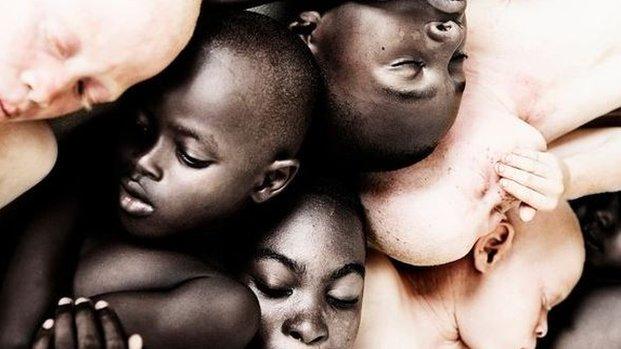
- Published29 April 2016
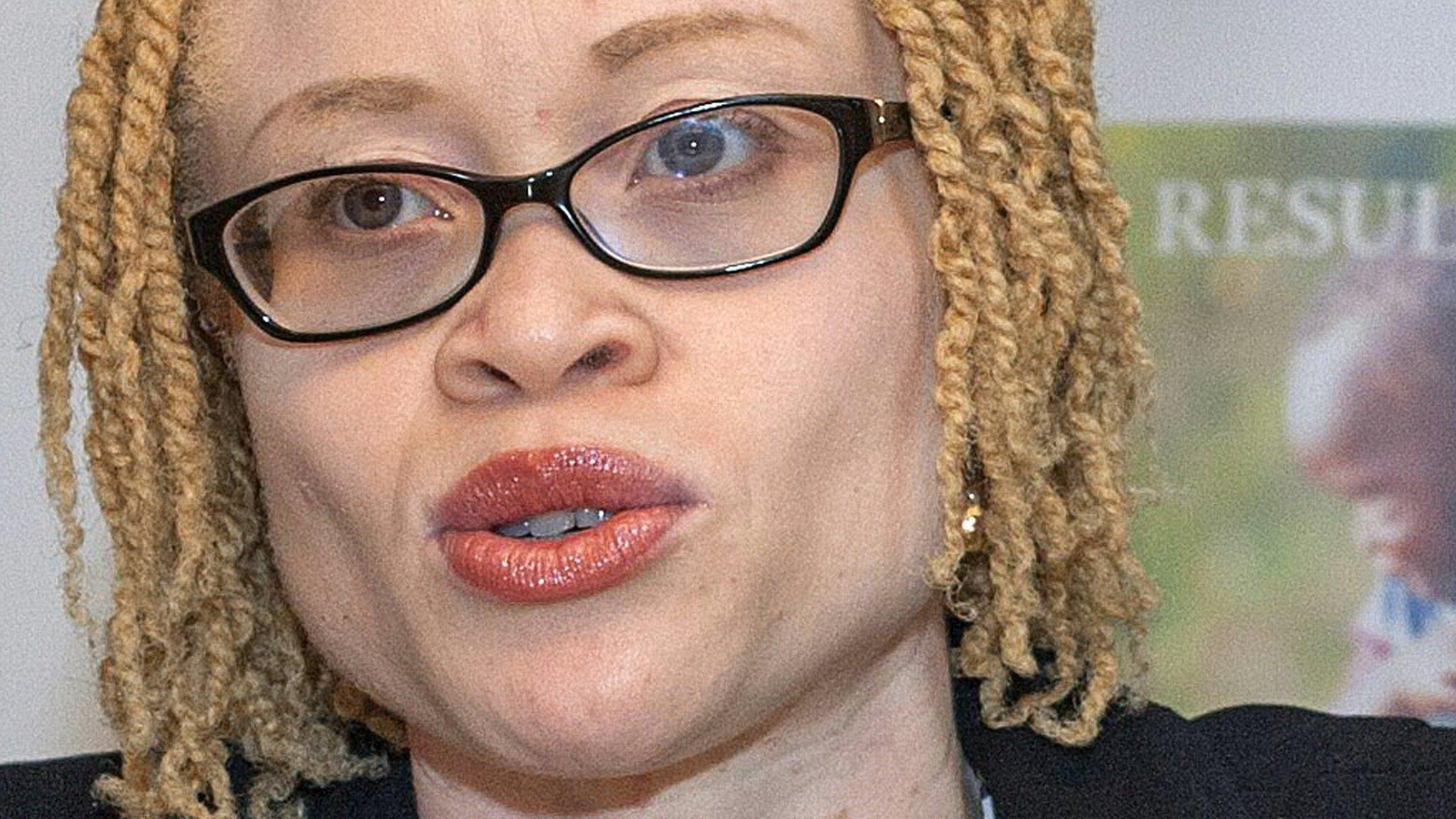
- Published16 May 2016
